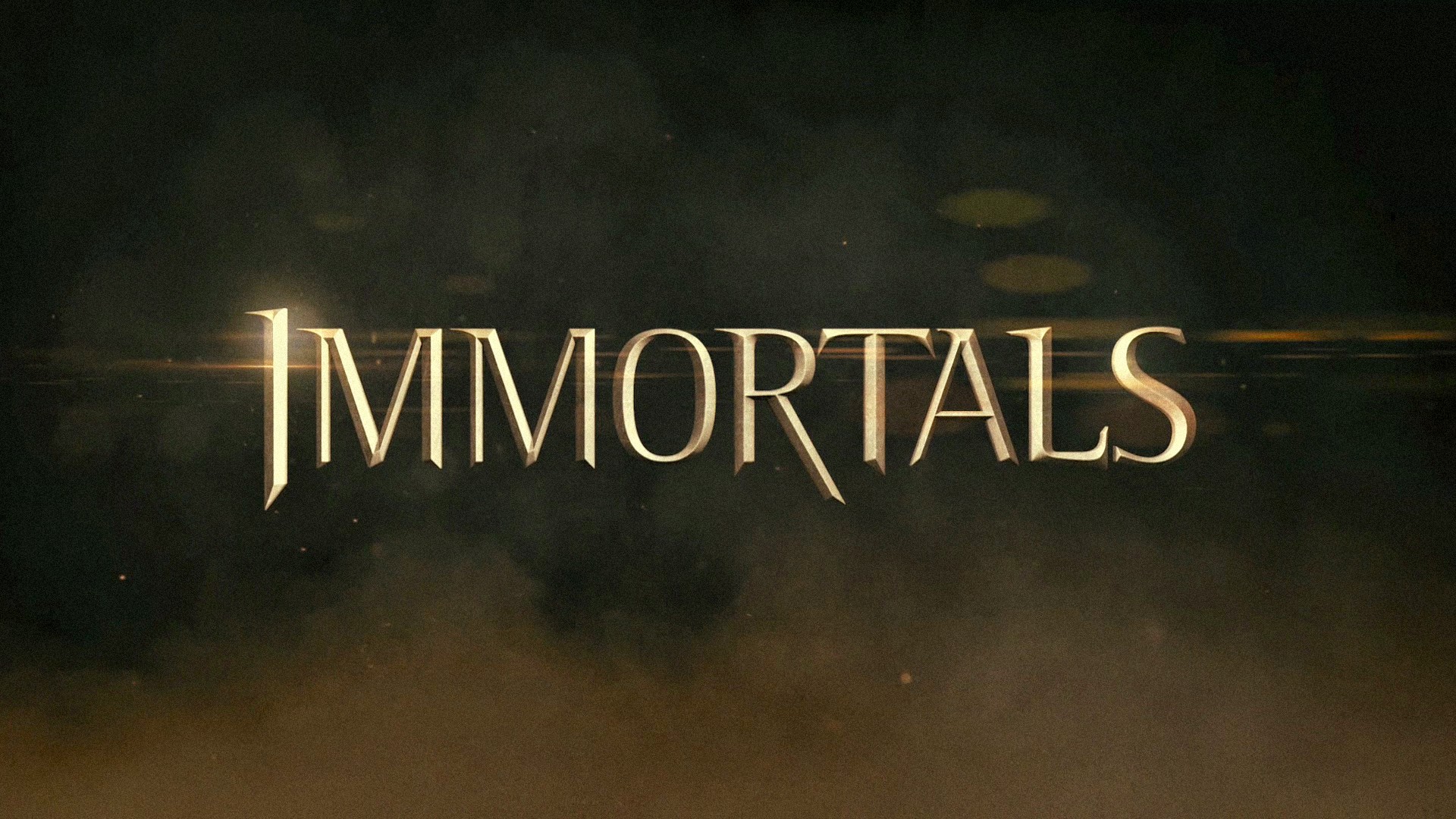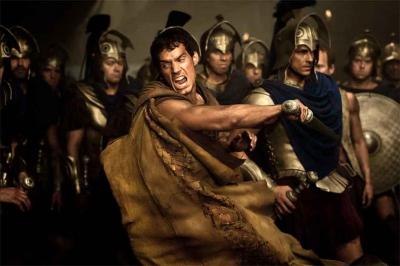

Hyperion origin is from a different myth, and was the name of one of the 12 Titans. In the Theseus story, Crete had its capital at Knossos, and its ruler was cruel King Minos, here Hyperion (Mickey Rourke, he chose to do this movie instead Conan, 2011) defies the Greek God, Zeus (Luke Evans ,he appeared a year earlier as Zeus' son Apollo in Clash of Titans). Theseus killed the Minotaur, a creature with the body of a man and a head of a bull imprisoned in a labyrinth, depicted here as a man with a helmet made of wires and horns with the help of princess Ariadne whom he later married. The picture takes Greek Gods here and there, as in the myths, Theseus (Henry Cavill, he trained for 8 hours 5 days a week to get in shape for the film) was actually King of Athens and (in some versions) a son of Poseidon (Greek god of sea and Zeus' brother, being played by Kellan Lutz), although his legal father was King Aegeus of Athens. Zeus then threw them into Tartarus, which is represented as a mountain in the movie, but in the old myths was a cave at the center of the Earth with minor similarities to Hell, to be imprisoned for all eternity. There was a war in the heavens and the Titans lost. There were only 12 titans in the myths and they were immortal and invincible. The Greeks may have borrowed this mythology from the Ancient Near East. There were twelve Olympian gods and goddesses and they were immortal and unkillable as well. As they had overthrown the primordial deities, the Immortal Titans were overthrown by younger gods, including many of their own children - the Olympians - in the Titanomachy (or "War of the Titans"). They were giant deities of incredible strength, who ruled during the legendary Golden Age, and also composed the first pantheon of Greek deities. Based on Mount Othrys, the Titans most famously included the first twelve children of the primordial Gaia (Mother Earth) and Uranus (Father Heaven). In Classical Greek mythology, Immortals were members of the second order of divine beings, descending from the primordial deities and preceding the Olympian deities. As screen writers state that they chose to change many aspects of the ancient Greek stories to reflect the fact that the Greeks themselves often revised their mythology to conform to new ideas and knowledge. The story is very loosely based on Greek mythology, creating a potpurrí of Gods and legends, mingling elements of various myths. The picture is a fun sword and sandals epic with stirring adventures, struggles, bizarre scenarios and turns out to be an acceptable story and quite entertaining. Rallying a band of fellow outsiders, including visionary Priestess Phaedra (Freida Pinto) and cunning slave Stavros (Stephen Dorff), one hero will lead the uprising, or watch his homeland fall into ruin and his Gods vanish into legend. Secretly chosen by Zeus (Luke Evans), Theseus must save his people from Hyperion and his hordes. They remain powerless to stop Hyperion, until a peasant named Theseus (Henry Cavill) comes forth as their only hope. But ancient law dictates the Gods must not intervene in man's conflict.

In the King's hands, the bow would rain destruction upon mankind and annihilate the Gods. Only he who possesses this bow can unleash the Titans, who have been imprisoned deep within the walls of Mount Tartaros since the dawn of time and thirst for revenge. Amassing a bloodthirsty army of soldiers disfigured by his own hand, Hyperion has scorched Greece in search of the legendary Epirus Bow, a weapon of unimaginable power forged in the heavens by Ares (Daniel Sharman). Mad with power, King Hyperion (Mickey Rourke) has declared war against humanity. Eons after the Gods won their mythic struggle against the Titans, a new evil threatens the land.


 0 kommentar(er)
0 kommentar(er)
